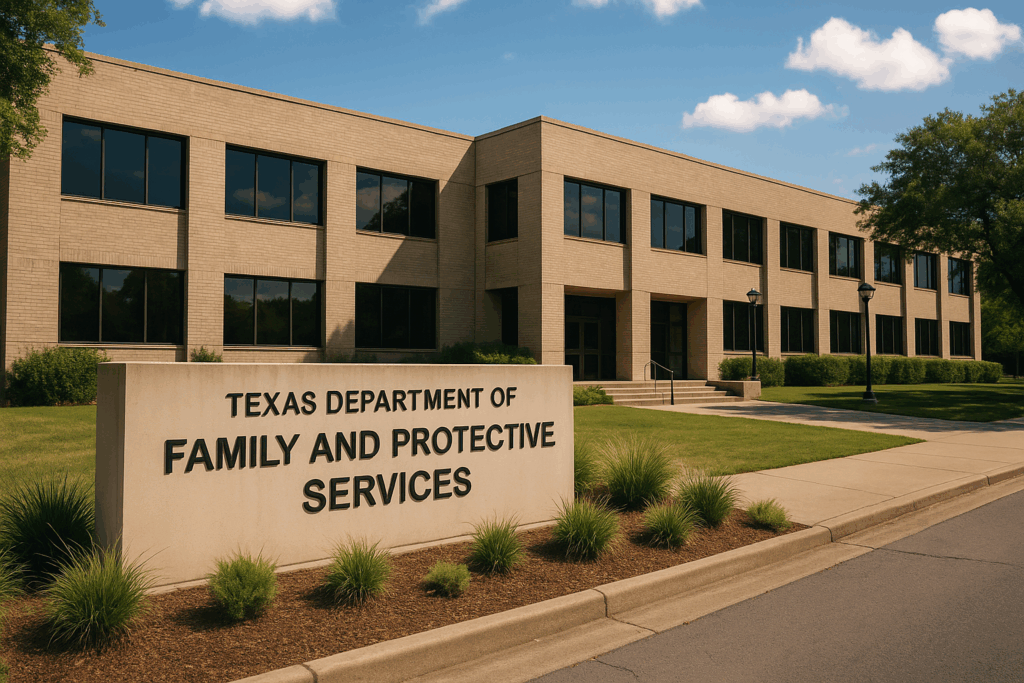
Imagine trying to adopt in Texas without understanding what a Texas Adoption Home Study Report is—kind of like showing up to a potluck without knowing what dish you were supposed to bring. Awkward, right? The Texas Adoption Home Study Report is one of the most crucial steps in the adoption process, and if you’re planning to open your heart and home to a child, this report is the state’s way of making sure you’re truly ready.
So, what’s the short version? It’s a professional evaluation of your lifestyle, home environment, background, and parenting preparedness—all rolled into one official document. And while that may sound intimidating at first, don’t worry. You’re not expected to be perfect. Texas just wants to ensure you can provide a safe, stable, and nurturing home.
In this article, we’ll walk you through everything you need to know about the Texas AdoptionHome Study Report—from what’s included to how to prepare, what social workers are really looking for, and how you can confidently check every box without losing your mind. Along the way, you’ll get real-world advice, legal insight from the experienced team at The Law Office of Bryan Fagan, PLLC, and the kind of practical support that turns overwhelm into action.
If you’re ready to take the mystery (and the stress) out of this essential step in your adoption journey, you’re in the right place. Let’s get started.
Key Takeaways
- Texas post-adoption requirements mandate legal obligations, including mandatory post-placement visits, to ensure the well-being of adopted children.
- The Texas Department of Family and Protective Services plays a crucial role in post-adoption support, particularly for families adopting children with special needs.
- Adoptive parents must fulfill various responsibilities, such as providing medical care and updating legal documents, to maintain a stable and supportive environment for their adopted children.
Understanding Texas Post-Adoption Requirements
Texas post-adoption requirements form a vital part of the legal landscape for adoptive families, serving to safeguard the health, safety, and emotional well-being of adopted children after the adoption is finalized. As our family law team often advises, compliance with these requirements isn’t just a legal formality—it’s a commitment to providing a nurturing, stable environment where a child can grow and thrive. One of the central components is the Texas Adoption Home Study Report, which plays an ongoing role even after placement. Under Texas Family Code §162.003 through §162.009, adoptive families are required to complete a series of post-placement visits. These typically begin within two to four weeks of placement and are designed to evaluate how well the child and family are adjusting to the new arrangement.
Another critical requirement is the adoption assistance agreement, which must be completed prior to the finalization of the adoption. This agreement provides essential financial support to meet the ongoing needs of the child, particularly when special medical, psychological, or educational support is necessary. Under Texas Family Code §162.304, these agreements are not only encouraged—they’re legally mandated to ensure that no child is placed in a family without the necessary resources to succeed.
These steps are especially important when addressing the trauma and loss many children face prior to adoption. Post-adoption requirements help parents provide consistent care and enable children to begin healing in a structured, supportive environment. For families adopting internationally or through foster care, complying with these legal obligations is key to long-term family stability—and to honoring the child’s need for safety and continuity.
To learn more about the intersection of Texas law and international adoptions, we recommend reading our related post: Streamlining the Process of Recognizing a Foreign Adoption Order in Texas.
Additionally, for a deeper dive into other legal considerations surrounding post-adoption parenting, visit our guide on creating a parenting plan that works, which explores how legal strategy and emotional support go hand-in-hand when raising adopted children.
Our team is here to ensure adoptive families are fully informed, legally supported, and compassionately guided every step of the way.

The Role of the Texas Department of Family and Protective Services (DFPS)
The Texas Department of Family and Protective Services (DFPS) plays a central role in the post-adoption process, particularly for families welcoming children with special needs. As our family law team frequently emphasizes, DFPS is not only responsible for ensuring compliance but also helps create a financial safety net through adoption assistance agreements. Under Texas Family Code §§ 162.304 and 162.308, DFPS can negotiate and provide adoption subsidies that help families manage the costs of raising a child with additional medical, educational, or emotional needs.
These adoption subsidies are critical for families adopting from the foster care system. Children who have experienced trauma, neglect, or frequent placements often require specialized care that extends well beyond the typical parenting experience. DFPS also monitors families through post-adoption supervision, ensuring that the adoptive home aligns with the original findings outlined in the Texas Adoption Home Study Report and that the child is adjusting well. This level of oversight supports long-term stability and helps ensure that adopted children continue to thrive in their new environment.
By working with DFPS, families can access a broad range of services—including therapeutic counseling, respite care, and parenting support groups—especially in the early months after finalization. If you’re looking to understand how DFPS supports families in your area, visit their regional services page for adoptive families in Texas.
To explore how these services tie into broader legal strategies, we also recommend reading our guide on nurturing healing in adopted children with a history of trauma, which outlines compassionate approaches grounded in legal best practices.
At The Law Office of Bryan Fagan, PLLC, we’re committed to helping adoptive families navigate every step of the process—from state requirements to emotional readiness—with clarity, compassion, and confidence.

Key Legal Obligations for Adoptive Parents
Adoption is a lifelong commitment that extends beyond the courtroom. Adoptive parents in Texas have a range of legal, medical, and educational responsibilities to ensure the well-being of their adopted children. These responsibilities include mandatory post-placement visits, providing medical care, and updating legal documents to reflect the child’s new status. Fulfilling these obligations is essential for creating a stable and supportive environment for the adopted child.
Understanding these key legal obligations is crucial for adoptive families to navigate the post-adoption process successfully. Adhering to these requirements ensures that children receive the necessary care and support to thrive.
The following sections will delve into the specific responsibilities that adoptive parents must fulfill, providing a comprehensive overview of the post-adoption requirements in Texas.
Mandatory Post-Placement Visits
Mandatory post-placement visits are a critical component of Texas post-adoption requirements. These visits, typically numbering five, are designed to monitor the adjustment and well-being of the adopted child and provide support to the adoptive family. These visits occur at regular intervals following the adoptive placement, allowing social workers to assess the family’s adaptation and address any issues that may arise.
Post-placement visit is essential for ensuring that the child’s needs are being met and that the family is adapting well to the new dynamics. This visit provides an opportunity for adoptive parents to receive requested post-adoption services and support from a licensed child placing agency and post-adoption service providers.
Fulfilling this requirement ensures a smooth transition for the adopted child and provides the necessary support to address any challenges related to the child’s age.
Medical Care Responsibilities
Adoptive parents have a significant responsibility to ensure that their adopted child receives comprehensive medical care. This includes regular health check-ups and any necessary specialized medical care to address the child’s unique needs. Providing consistent medical care is crucial for the child’s physical and emotional well-being, particularly if the child has a history of neglect or abuse.
Adoptive parents must arrange for regular medical check-ups and ensure that any special medical needs of the child are met. This responsibility also includes obtaining Medicaid benefits or other medical assistance programs if the child qualifies. Prioritizing the child’s health and well-being helps create a nurturing environment that supports overall development.
Updating Legal Documents
According to the attorneys at The Law Office of Bryan Fagan, PLLC, one of the most important post-adoption responsibilities adoptive parents face is updating all legal documents to reflect their child’s new identity and legal status. This process isn’t just administrative—it’s foundational to safeguarding the child’s rights and ensuring their new familial ties are recognized across state and federal systems. As required under Texas Family Code §162.018, this step is a critical part of finalizing a legally secure adoption.
After the adoption is finalized, parents must apply for a new birth certificate through the Texas Vital Statistics Unit. To complete this process, they will need to submit a certified copy of the Final Decree of Adoption, the certified Certificate of Adoption, and valid photo identification for each adopting parent. This updated birth certificate replaces the original, listing the adoptive parents as the legal parents and giving the child a legal identity aligned with their new family unit.
Beyond the birth certificate, adoptive parents must also notify the Social Security Administration to ensure the child’s Social Security records reflect their updated legal status. This can affect everything from benefits eligibility to tax documentation. It’s also essential to revise any existing legal documents related to guardianship, insurance policies, and estate planning. These updates play a crucial role in protecting the child’s rights to inheritance, health coverage, and other long-term benefits.
For those residing in areas like Universal City or nearby, families can learn more about regional adoption support by visiting the Universal City adoption services page.
If you’re navigating the next steps after completing your Texas AdoptionHome Study Report, we encourage you to explore our internal guide on what adoptive parents should do after finalizing an adoption. This blog includes a helpful checklist and insights into estate and legal document updates.
Our firm remains committed to providing practical legal guidance that protects your family’s future and simplifies every stage of the adoption process.

Reporting Requirements and Compliance
Adoptive parents in Texas must adhere to specific legal reporting requirements to ensure the welfare and proper integration of the adopted child into their family. These reporting requirements include obtaining criminal history record information for each person seeking to adopt and submitting it to the court as part of the adoption process. Compliance with these requirements is essential for maintaining the child’s safety and well-being.
Failure to comply with reporting obligations can lead to legal consequences and potential disruptions in the child’s placement under certain circumstances. Fulfilling these responsibilities demonstrates a commitment to providing a stable and nurturing environment for the adopted child.
Understanding and adhering to these reporting requirements is crucial for the success of the adoption process.
Maintaining Documentation and Records
Maintaining thorough documentation and records is essential for adoptive parents to stay compliant with Texas post-adoption requirements. Adoption-related records should be retained for a period of 99 years to ensure access to vital information as the child grows. It is advisable for adoptive parents to keep an extra copy of the Final Decree of Adoption for their personal records.
In Texas, adoption records are sealed, and adoptees can request a redacted version of their records for privacy. The Texas Department of Family and Protective Services (DFPS) is responsible for maintaining adoption records for cases it has handled. If the adoption was facilitated by a private agency, the records are kept by that agency or the Central Adoption Registry.
Maintaining accurate and thorough documentation ensures that adoptive parents have the necessary information to support their child’s needs.
Honoring Post-Adoption Agreements
Honoring post-adoption agreements is a vital part of fostering long-term emotional stability for adopted children and preserving healthy, respectful relationships between adoptive and birth families. These agreements—often part of open adoption arrangements—serve as a structured, legally acknowledged roadmap for ongoing contact and communication. According to Texas Family Code §162.007, post-adoption contact agreements can be formalized in writing and submitted to the court, though they are not legally enforceable unless included in the adoption decree with the court’s approval. Still, maintaining and honoring these agreements is highly encouraged as a matter of best practice and ethical commitment.
As our family law team often advises, honoring the spirit of these agreements requires more than signatures—it takes ongoing commitment, transparency, and clear communication from all parties involved. Open adoption arrangements may include scheduled visits, phone or video calls, written updates, or the exchange of photos. When thoughtfully managed, these interactions can be deeply beneficial for the child’s sense of identity, belonging, and emotional security.
For adoptive parents, upholding these agreements also supports the core findings outlined in the Texas Adoption Home Study Report, which assesses the family’s readiness and capacity to nurture the child’s emotional needs post-placement. Continued communication with birth parents, where appropriate, demonstrates a willingness to prioritize the child’s psychological development and connection to their roots—an especially meaningful component in both domestic and international adoption cases.
Families pursuing or managing open adoptions across international borders should take extra care to understand the nuances of applicable international law. To learn more, we recommend reading the Essential Guide to International Adoption Laws for Tomball, Texas, which explores jurisdictional complexities and how to ensure your agreements are culturally and legally aligned.
For additional insight on maintaining long-term connections in blended family structures, visit our internal post on navigating co-parenting in complex custody situations. Whether your family dynamic is new or evolving, our attorneys are here to provide compassionate guidance backed by Texas law.
At The Law Office of Bryan Fagan, PLLC, we help families honor the agreements that build trust, protect emotional bonds, and support the healthy development of every child adopted into a loving home.

Open Adoption Arrangements
Open adoption arrangements provide an opportunity for ongoing relationships between biological and adoptive families, which can significantly benefit the child involved. These arrangements require clear documentation, including the terms of the agreement, the frequency of visits, and any communication expectations. Honoring the terms of open adoption agreements is crucial for the child’s emotional well-being and fosters a supportive environment.
Effective communication between adoptive parents and birth parents enhances trust and compliance with the open adoption agreement. Maintaining open and honest communication ensures the child’s best interests are prioritized. This approach helps create a nurturing environment that supports the child’s overall development.
Communication with Birth Parents
Communication with birth parents should be guided by the terms of the adoption agreement and focused on the child’s best interests. Maintaining healthy communication with birth parents is essential for the emotional well-being of the adopted child and fosters a supportive post-adoption environment.
Establishing openness in communication fosters trust and benefits the child, supporting a healthy post-adoption environment. By prioritizing the child’s needs and ensuring their well-being, adoptive parents can create a positive and nurturing environment that supports the child’s overall development.
Post-Adoption Support and Resources
Post-adoption support services play a critical role in helping families successfully navigate the transition into adoptive life—particularly when children come from backgrounds of trauma, neglect, or disrupted attachment. As our legal team frequently advises, the journey doesn’t end once the adoption is finalized; it evolves. That’s why Texas provides a range of post-adoption resources designed to empower families and support children’s long-term success and well-being. These services, as outlined under Texas Family Code §162.304 and §264.852, may include access to counseling, respite care, support groups, casework assistance, and adoption subsidies—especially for families adopting children with special needs.
Families who have completed the Texas Adoption Home Study Report and finalized their adoption may be eligible for continued financial support, including non-recurring expense reimbursements and monthly adoption assistance payments. These resources are designed to reduce financial strain and allow families to focus on meeting the medical, emotional, and educational needs of their adopted child. Many services are coordinated through the Texas Department of Family and Protective Services (DFPS), and eligibility requirements are clearly defined to ensure support reaches those most in need.
These services are particularly essential during the first year post-adoption, when new routines, emotional adjustments, and legal updates can feel overwhelming. Counseling and peer support groups can provide parents with tools to address behavioral challenges, process their own experiences, and stay connected with others navigating similar paths. Respite care options also offer much-needed breaks for caregivers, helping to prevent burnout and reinforce stability at home.
For families living in or near Comfort, Texas, a helpful starting point is the Comfort area adoption services page, which outlines available DFPS programs and localized support options tailored to regional needs.
Additionally, our in-depth guide on how trauma-informed parenting impacts adoption success is a valuable resource for any family seeking to create a compassionate, healing-focused home environment.
At The Law Office of Bryan Fagan, PLLC, we remain committed to ensuring that adoptive families are not only legally prepared but emotionally supported throughout their entire journey. From post-placement planning to long-term advocacy, we’re here to educate, empower, and protect what matters most—your family’s future.

Post-Adoption Services
Post-adoption services in Texas include a range of support options designed to help adoptive families thrive. Counseling services are available to help families navigate challenges after adoption. Crisis intervention services are also available 24/7 to address urgent needs within adoptive families.
Support groups for parents, teens, and caregivers provide a network of support and allow families to share their experiences and learn from others. Casework services are part of the post-adoption support offered to families in Texas, helping them navigate ongoing challenges.
Accessing these services from a provider offers the necessary support for a successful post-adoption experience.
Financial Assistance Programs
Financial assistance programs are available to support adoptive families in Texas. Families can receive up to $1,200 to reimburse non-recurring adoption expenses for special needs children. Reimbursement for adoption expenses is made after the adoption is completed by the court, and receipts are necessary to receive reimbursement.
Texas also offers a tuition and fee waiver for youth formerly in foster care or adopted. Adoptive parents should seek legal guidance to understand potential eligibility for post-adoption assistance programs and subsidies, including any associated cost and funds, and to determine if they are eligible for additional support under the Texas family code, including Title IV E.
Taking advantage of this financial assistance program helps alleviate adoption costs, providing a stable and nurturing environment for adopted children through a limited adoption assistance program to receive adoption assistance at a slower pace.
Legal Guidance for Adoptive Parents
Seeking legal guidance is crucial for adoptive parents to navigate the complexities of adoption laws and post-adoption processes in Texas. Consulting a qualified attorney can help adoptive parents understand their legal rights and responsibilities post-adoption. An adoption attorney can assist families in navigating complex legal issues that may arise after the adoption process is finalized.
Each adoption case in Texas is unique, making personalized legal advice essential for ensuring compliance with Texas laws regarding post-adoption agreements and responsibilities. Legal advice is critical for adoptive parents to ensure they are meeting all Texas post-adoption requirements and providing the best possible care for their adopted children.
Estate Planning and Custody Considerations
Adoptive parents should review and update their estate planning documents to reflect new family dynamics after adoption. This includes reassessing custody arrangements for existing children to ensure their welfare is maintained. Engaging an attorney can help adoptive parents address disputes or challenges related to custody and visitation rights.
Clear communication about roles and responsibilities regarding estate planning and custody is essential for adoptive families. Updating estate planning documents and custody arrangements protects children’s legal rights and prioritizes their welfare, especially in cases of permanent managing conservatorship.

Real-Life Examples and Testimonials
Real-life examples and testimonials provide insight into the challenges and successes families face in the post-adoption process. Families have reported successful outcomes such as better integration into the family unit and improved emotional well-being of the adopted child. These stories illustrate the transformative impact of comprehensive post-adoption support, encouraging future adoptive families to embrace the journey.
Adoptive parents have shared testimonials praising the resources available that helped them through the transition, highlighting support groups and community networks. One family recounted how adopting a dog named Bella, who overcame significant health issues, brought joy and stability to their household, emphasizing the importance of a supportive adoption process.
These real-life stories inspire confidence and provide a blueprint for other families embarking on the adoption journey.
Conclusion:
If you’ve made it this far, give yourself a pat on the back—navigating the world of adoption isn’t for the faint of heart. But here’s the truth: you don’t have to go it alone. Whether you’re just starting out or knee-deep in paperwork, understanding the role of the Texas Adoption Home Study Report puts you ahead of the curve and closer to the moment you welcome a child into your family.
Every form, every interview, every home visit is about something much bigger—creating a secure, loving environment for a child who needs it. That’s a beautiful mission, and at The Law Office of Bryan Fagan, PLLC, it’s one we’re honored to support. Our team is here to walk with you, answer your questions, and help make the legal side of adoption as smooth and stress-free as possible.
So if you’re feeling ready to take the next step—or even if you’re still wrapping your head around what a home study really means—let’s talk. Because when it comes to building families and protecting futures, having an experienced Texas Family Law Attorney in your corner can make all the difference.
And hey, one day when your adopted child asks about how they came into your life, you’ll be able to say, “It all started with a report… and a whole lot of heart.”
Texas Adoption Home Study & Records FAQ
What is a home study for adoption in Texas?
A home study for adoption in Texas is a comprehensive evaluation conducted by a licensed social worker to determine whether prospective adoptive parents can provide a safe, stable, and loving home for a child.
How can I find adoption records in Texas?
In Texas, adoption records are typically sealed. You can request non-identifying information through the Texas Department of Family and Protective Services or petition the court to unseal records under certain circumstances.
How long is a home study good for in Texas?
A home study in Texas is generally valid for one year. After that, it must be updated to ensure that the information remains current and accurate.
What is the Texas adoption study and what did it find?
The Texas adoption study refers to research conducted to evaluate the outcomes and challenges within the state’s adoption system. It often highlights issues like access to services, post-adoption support, and systemic improvements needed for better child welfare outcomes.
How much is a home study in Texas?
The cost of a home study in Texas varies, but it typically ranges from $1,000 to $3,000, depending on the agency and type of adoption. Some public adoptions may be subsidized or provided at no cost.
How long does it take for a home study to be approved?
The approval process for a home study in Texas can take anywhere from four to twelve weeks, depending on how quickly documentation is provided and the availability of the home study provider.
What happens to original birth certificate after adoption in Texas?
After an adoption in Texas is finalized, the original birth certificate is sealed, and a new amended birth certificate is issued listing the adoptive parents as the child’s legal parents.
Are Texas adoption records sealed?
Yes, adoption records in Texas are sealed once the adoption is finalized. Access to these records requires a court order or special petition under specific legal circumstances.
How long are adoption records sealed?
Adoption records in Texas are sealed permanently, although adult adoptees may request non-identifying information or petition for access once they reach the age of 18.
Bryan Fagan is a Texas family law attorney with a heart for adoption—inspired not just by his legal career, but by his own family story. Growing up in Atascocita with two adopted brothers, Bryan learned early the profound meaning of chosen family. His passion for justice was sparked by John Grisham’s The Pelican Brief, and he became the first lawyer in his family, balancing night classes at South Texas College of Law while caring for his grandmother with Alzheimer’s.
Today, Bryan brings that same dedication to his practice, guiding families through adoptions, custody disputes, divorces, and complex marital agreements. A certified member of the College of the State Bar of Texas, he combines elite legal expertise with genuine empathy—drawing from his roles as a husband, father of three, and advocate for families facing false CPS allegations.
Based in Houston, Bryan is actively involved in the Houston Bar Association’s Family Law Sector and statewide family law organizations. Whether finalizing an adoption or protecting parental rights, he believes the law should reflect the deepest values of home, commitment, and love.

